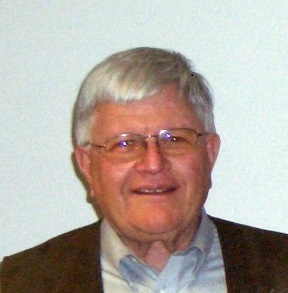1949 KIOSK - SPONSORED BY DON'S QUALITY MARKET
 1949 Kiosk - Sponsored by Don's Quality Market
1949 Kiosk - Sponsored by Don's Quality Market
The museum contains a number of interactive kiosks featuring touch screen computers that contain many pictures and interviews. For someone interested in Seymour area history and willing to take the time to investigate thoroughly, the computers contain a wealth of information and little known facts about Seymour. The Kiosks with detailed information include a look at Seymour in 1949 sponsored by the Don Reed Family and Don's Quality Market, a Seymour Quiz sponsored by the family of Robert Kuehne, the Seymour Fair sponsored by John Cumicek, and Reese's Dairy Bar sponsored by the family of Bill Reese.
Included in the 1949 Kiosk are interviews with: Bob Coonen, Gary Melchert, Charlie Jenkins, Roberta Mory, Don Reed, Roy Puls, Don Feurig, Al Storma, Bud VandenHeuvel, Lucille Miller, John Selmer, Gail Dean and Ralph Melchert.
One of the most popular and compelling interviews is with Ralph Melchert and his recollections as a child when German prisoners of war worked for the canning factory and on his parent's farm.
Interview with Ralph Melchert.
"I remember when the German prisoners came to Seymour to work at the canning factory. If they didn’t need everyone, farmers could come and pick them up. I remember my dad coming in the morning to pick up a prisoner and in the evening he would take him back. I believe they came to Seymour in an army truck. What impressed me was the guard. I believe I saw only one guard with a rifle.
I wasn’t afraid of the prisoners because they weren’t armed, but being only seven years old I remember the guard with a rifle and that scared me a little bit. I remember one prisoner in particular, Willie Kruschinski, and he came out a lot. He waited for the man with the Schwartz auto, 'the black car' as he called it. That was my dad and my dad could speak German, so they got along and could communicate. One of the things the prisoners would do is bundle grain. They would cut it and put it in bundles for harvesting. It was before the days when chemicals were being used on the crops and often times they would pull weeds in the fields.
The prisoners weren’t supposed to be fed at the farm. They would bring a little sack lunch, but it didn’t look like much and my mother would invite them to sit at the table with the family. They always had a good dinner which I’m sure they appreciated. After the war our family kept in contact with Willie and his family. He was from East Berlin and during the war it was bombed out and he was devastated. His family didn’t have much and my parents sent care packages to them. Willie never came back over here, but in 1983 my father and I went over there to see him.
Of course, that was before the fall of the Berlin Wall and as we traveled into East Berlin you could really see the difference. There was barbed wire along the tracks and sharp spear like rods outside the barbed wire so if anyone did get through and jumped the fence they would get speared on those rods. There were towers at every train station with guards and machine guns and binoculars securing the area. There were police dogs and guards, it was a very threatening experience.
Somehow Willie had gotten out of East Berlin and we visited him in West Berlin. He insisted we go to East Berlin to see what it was like. I really didn’t want to go there, but he persisted. We stayed in West Berlin for three or four days. When it was time to go he took us to the train station. We didn’t see Willie again after that.
The prisoners stayed at a camp near Hortonville. I remember before my parents got prisoners we took a ride to the camp near Hortonville to see what it was like.
His daughter Ellen came to the United States. I think 1978 was the first year. She came over and visited my parents in Seymour.
The prisoners never tried to escape because they had conditions pretty good compared to fighting in the war. I think most of the farmers wives fed them pretty good."